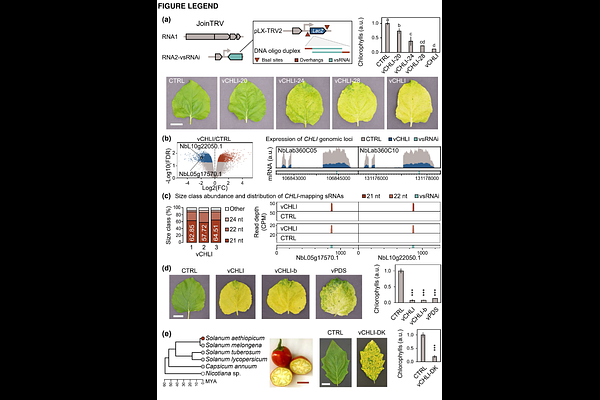Comparative genomics-driven design of virus-delivered short RNA inserts triggering robust gene silencing

Comparative genomics-driven design of virus-delivered short RNA inserts triggering robust gene silencing
Garcia, A.; Aragones, V.; Gioiosa, S.; Herraiz, F. J.; Ortiz-Garcia, P.; Prohens, J.; Daros, J.-A.; Pasin, F.
AbstractEngineered RNA viruses can downregulate target genes through virus-induced gene silencing (VIGS). Largely optimized using the model plant Nicotiana benthamiana, current VIGS protocols rely on viral vectors engineered to deliver 200-400 nt inserts with homology to a target gene, often located in less conserved regions to ensure specificity. Given the N. benthamiana allopolyploidy and functional redundancy, we leveraged enhanced genomics and transcriptomics resources to obtain curated locus annotations, which guided the design of virus-delivered short RNA inserts (vsRNAi) for simultaneous targeting of homeologous gene pairs. Our results showed that quantitative silencing phenotypes could be obtained using 24-, 28-, and 32-nt vsRNAi that targeted conserved regions of functionally redundant gene pairs. vsRNAi triggered informative transcriptome-wide changes, and target transcript downregulation was linked to gene-pair-specific production of 21- and 22-nt sRNAs. The portability of vsRNAi to crops was confirmed in tomato (Solanum lycopersicum) and scarlet eggplant (Solanum aethiopicum). Overall, our results support the usefulness of vsRNAi-based approaches in functional genomics and trait reprogramming of the model species N. benthamiana, as well as of crops that contribute to global and local food provisions.